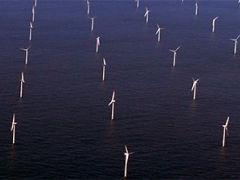PROS and CONS: Hydrokinetic Power
Nov 14
Most people are aware of hydroelectric power that is generated by dams; hydrokinetic power is similar in that it harnesses the power of water to create energy but is less intrusive on the environment.

In an effort to become less dependent on oil and better stewards of the environment the future of this special energy looks bright. Many individuals and companies are looking at hydrokinetic power as the answer to the energy crisis. But hydrokinetic power has both an up and downside.
One of the most positive points for hydrokinetic power – it is a renewable energy source and does not emit any greenhouse gases. The downside is that the technology has been lagging in both research as well as design, behind more popular renewable energies such as wind and solar. With this slow process there is also the fact that no standard designs or best practice rules have been established. These are critical when consideration devices that will be underwater for long time periods and will be required to stand up to rigorous external forces.
Despite the list of positives and negatives the quest to harness the power of water to create sustainable energy will move forward at a rapid pace. There are currently companies that have partnered together to establish hydrokinetic power as a major source of energy for the Southeastern United States. The vision and goals will be a location that springboards other areas to invest in hydrokinetic power to compliment ongoing renewable energy source programs.
Related Posts
- Tidal Wave Energy: New cutting edge technologies
- Tidal Power Pros and Cons Comparing to Other Sources of Energy - Updated Article With Extra Information
- Tidal Power: Nature’s renewable hydro electric engine: Additional info
- Tidal Wave Generators Review
- Underwater energy sources: Tapping into nature’s hidden power
Leave a Reply
You must be logged in to post a comment.




